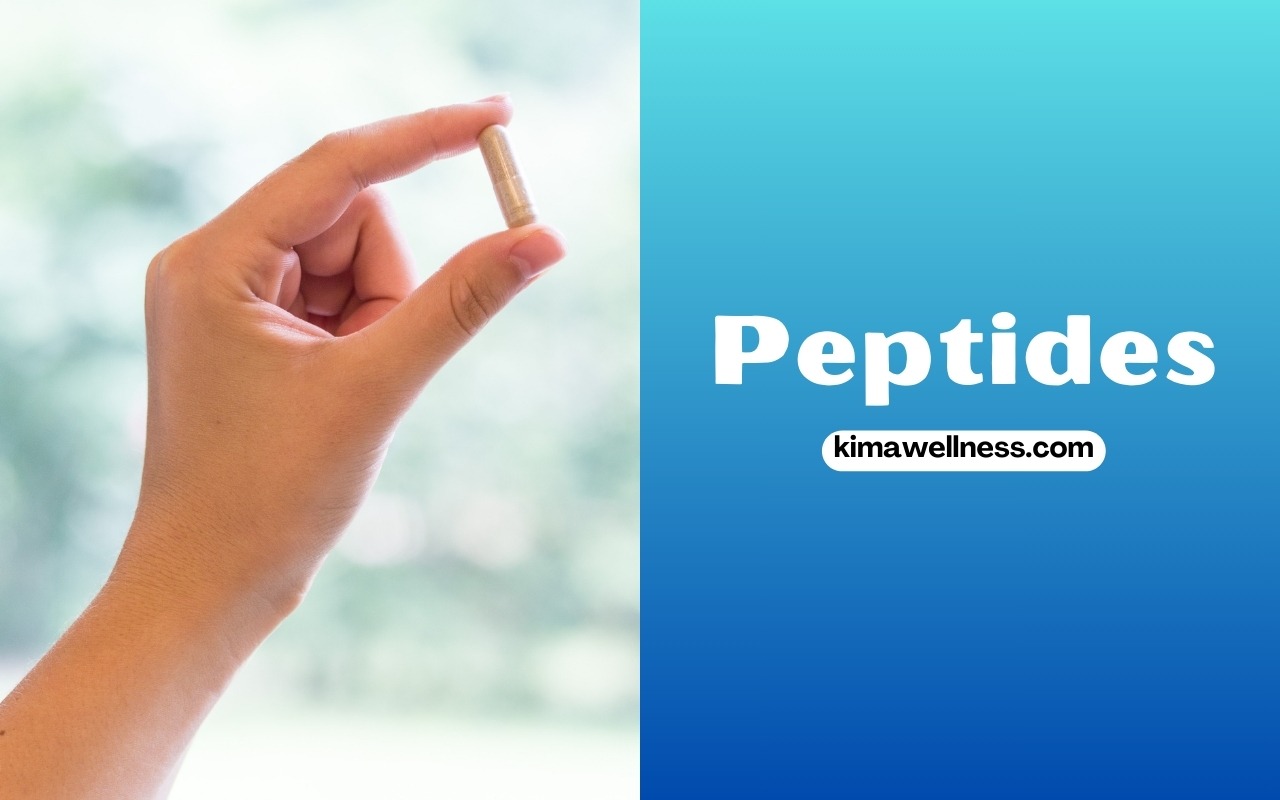
As wellness experts at KIMAWellness.com, we specialize in integrative approaches that support healing, mobility, and pain management. Chronic inflammation is at the root of many musculoskeletal conditions, from arthritis and tendonitis to post-injury pain and fibromyalgia. While traditional treatments often involve pain medications or invasive procedures, peptides are emerging as a natural, science-backed approach to reducing inflammation and supporting long-term recovery.
Peptides are short chains of amino acids that serve as messengers in the body, regulating key processes such as tissue repair, immune function, and inflammatory response. By working with the body’s natural mechanisms, peptides may help control inflammation, accelerate healing, and improve overall mobility—making them a promising option for those looking to manage chronic pain without pharmaceuticals.
The Role of Inflammation in Chronic Pain
Inflammation is the body’s natural response to injury or infection. While acute inflammation is necessary for healing, chronic inflammation can lead to prolonged pain, stiffness, and tissue degeneration. This is particularly common in conditions such as:
- Osteoarthritis
- Rheumatoid arthritis
- Tendonitis and bursitis
- Fibromyalgia
- Chronic low back and neck pain
- Post-surgical recovery and scar tissue pain
When inflammation persists, it contributes to ongoing discomfort, reduced range of motion, and delayed healing. Peptides offer a non-invasive, therapeutic approach that may help regulate the inflammatory response and promote tissue repair.
How Peptides May Help Reduce Chronic Inflammation
Peptides interact with the body’s signaling pathways to modulate inflammation and promote recovery. Here are some of the most researched peptides for chronic pain management and tissue healing:
1. Peptides for Anti-Inflammatory Support
Some peptides work directly to reduce inflammatory cytokines, the molecules responsible for excessive inflammation and pain.
- BPC-157: Known as the “healing peptide,” BPC-157 has been shown to reduce swelling, protect joints, and accelerate tissue repair in musculoskeletal injuries.
- Thymosin Alpha-1: This peptide helps balance immune function by reducing chronic inflammatory responses that contribute to autoimmune-related pain.
- LL-37: A naturally occurring antimicrobial peptide that may reduce inflammation in tissues and joints, particularly in individuals with chronic infections or autoimmune disorders.
2. Peptides for Joint and Soft Tissue Repair
For those suffering from joint degeneration or soft tissue injuries, peptides can stimulate cell regeneration and enhance structural integrity.
- Thymosin Beta-4: Plays a key role in tissue remodeling and repair, making it beneficial for post-surgical healing, tendonitis, and ligament injuries.
- Collagen Peptides: Essential for joint lubrication and cartilage repair, collagen peptides can help improve mobility and reduce stiffness in conditions like arthritis.
- CJC-1295 & Ipamorelin: These peptides work together to stimulate growth hormone production, supporting muscle recovery and joint health over time.
3. Peptides for Nerve Pain and Neuropathy
Chronic pain often involves nerve dysfunction, especially in conditions like sciatica, diabetic neuropathy, and fibromyalgia. Certain peptides may help regenerate nerve tissue and reduce pain sensitivity.
- Cerebrolysin: A neuropeptide blend that supports nerve regeneration and cognitive function, potentially helping those with nerve-related pain.
- AOD 9604: Originally studied for metabolic benefits, this peptide may reduce nerve inflammation and improve recovery in nerve-related injuries.
- BPC-157: Not only beneficial for muscles and joints, BPC-157 has been shown to support nerve healing and reduce pain perception.
The Benefits of Peptides in Physiotherapy and Wellness
Integrating peptides into a physiotherapy and wellness plan may provide several advantages for individuals dealing with chronic pain, including:
- Non-invasive pain relief – Peptides offer a natural alternative to pain medications and cortisone injections.
- Improved mobility and flexibility – By supporting tissue repair, peptides may help restore range of motion and functional movement.
- Faster injury recovery – Ideal for post-surgical patients or those recovering from sports injuries.
- Long-term joint and muscle health – Peptides may slow degenerative processes, helping to maintain mobility as you age.
- Synergy with physical therapy – Used alongside manual therapy, strength training, and corrective exercises, peptides may enhance rehabilitation outcomes.
How to Integrate Peptides Into a Pain Management Plan
While peptides show promise, they work best when combined with holistic, patient-centered care. Here’s how to incorporate them into a wellness routine:
- Consult a healthcare professional – Work with a physiotherapist or wellness expert who understands peptide therapy.
- Combine peptides with physical therapy – Stretching, strengthening, and mobility exercises complement the healing effects of peptides.
- Use nutrition to support recovery – An anti-inflammatory diet rich in omega-3s, collagen, and antioxidants can enhance peptide effectiveness.
- Prioritize movement and lifestyle adjustments – Proper posture, daily mobility work, and stress reduction techniques can reduce pain triggers.
Are Peptides Safe for Pain Management?
Peptides are generally well-tolerated, but as with any therapy, individual responses vary. Potential side effects may include:
- Mild digestive discomfort (with oral peptides)
- Temporary fatigue (with some peptides affecting hormone regulation)
- Injection site irritation (for peptides requiring subcutaneous administration)
It’s essential to use clinically tested, high-quality peptides and to follow professional guidance when incorporating them into a pain management plan.
Conclusion: A New Frontier in Pain Relief
Chronic pain and inflammation don’t have to dictate your quality of life. As part of a comprehensive wellness and rehabilitation approach, peptides offer a natural, science-based solution for reducing pain, improving mobility, and supporting long-term healing.
At KIMAWellness.com, we are committed to helping our clients move better, feel stronger, and recover naturally.
Related: Collagen vs. Biotin vs. Keratin